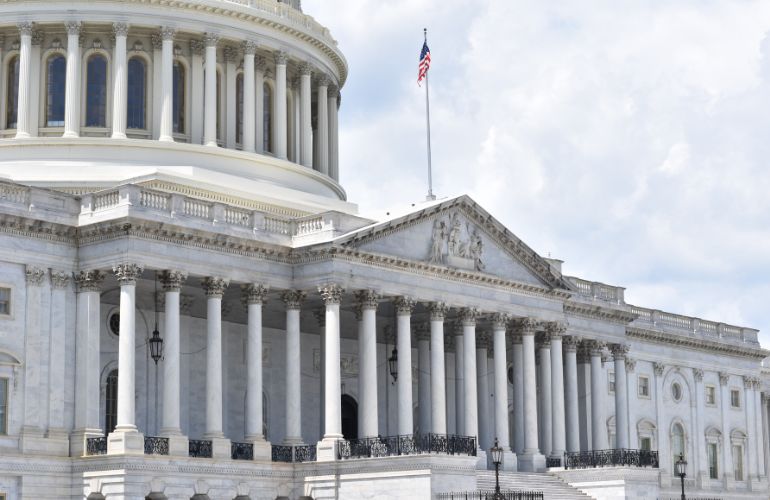On July 1, the U.S. Senate passed its version of the budget reconciliation bill with Vice President JD Vance casting the tie-breaking vote. The final version removed a new 50% excise tax on solar projects using components associated with China, according to Politico.
Politico also reports that the final version allows utility-scale solar and wind projects that begin construction less than one year after the bill’s enactment, and place it into service within four years, to still claim the full ITC/PTC credit. Projects that start construction after that period would still need to be placed in service by the end of 2027. According to Roth Capital Partners, “this would effectively extend the 100% ITC/PTC through mid-2030 for projects that are able to start construction by mid-2026.”
Key highlights in final Senate budget bill
- Homeowner/residential ITC (25D) expires at year-end 2025
- Residential leasing companies can receive the ITC (48E)
- Non-residential solar projects that start construction less than 12 months after bill enactment and place into service within four years can still claim full ITC/PTC (48E/45Y) credit
- Excise tax on solar projects using Chinese components is removed
- Projects that start construction in 2025 do not need to meet Foreign Entity of Concern (FEOC) requirements. But projects beginning construction in 2026 and later cannot receive “material assistance from a prohibited foreign entity”
- The storage ITC (48E) is still exempt from the accelerated phase-down and intact through 2033
- The manufacturing tax credit (45X) is preserved and stackability appears to be restored (meaning a solar wafer-cell-panel manufacturer can get credits for all three components if they are made in the same facility)
“Despite limited improvements, this legislation undermines the very foundation of America’s manufacturing comeback and global energy leadership. If this bill becomes law, families will face higher electric bills, factories will shut down, Americans will lose their jobs, and our electric grid will grow weaker,” said Abigail Ross Hopper, president and CEO of SEIA, in a press statement.
“Enacting this legislation would set back America’s global competitiveness, destabilize our energy future, and weaken the very industries that power our economy and strengthen our national security — while surrendering the 21st-century tech race to China. It will strip the ability of millions of American families to choose the energy savings, energy resilience, and energy freedom that solar and storage provide. As the House re-considers this legislation, every member should ask themselves what kind of future they’re voting for. Our communities, our businesses, and our futures are on the line,” the group continued.
The bill now returns to the House of Representatives, where it must approve the changes before advancing the bill to the Oval Office.
The story will be updated as more details on the Senate version are made available.

